New clients in year 2022
Between 1 January and 31 December 2022, as many as 429 new clients were admitted to the Assistance System for Victims of Human Trafficking. 367 of them were admitted because the Assistance System assessed that they may have fallen victim to human trafficking. 62 people admitted to the Assistance System were underaged children of people who had fallen victim to human trafficking, as the children were in need of assistance and support alongside their guardian.
The Assistance System does not collect more detailed statistics concerning these 62 children; the statistics below only cover the 367 victims of human trafficking.
The new clients represented 38 nationalities. The most common nationalities (in alphabetical order) were Afghan, Cameroonian, Filipino, Finnish, Iraqi, Moroccan, Nigerian, Rwandan, Somali, Thai, Turkish, Ukrainian and Vietnamese. Four new clients had an unknown nationality or no nationality.
The war in Ukraine did not affect the number of Ukrainian citizens referred to the Assistance System. In 2022, the Assistance System accepted six Ukrainian citizens as clients, whereas the year before, the number of new Ukrainian clients was five.
Figure 3. New clients admitted to the Assistance System in 2022
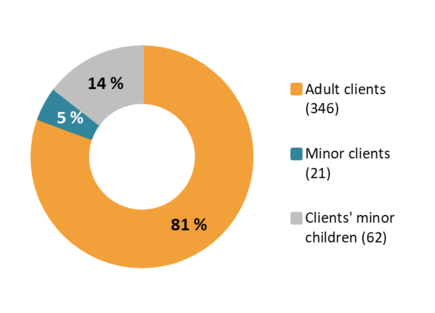
The diagram shows the number of new adult clients, underaged clients and the number of the underaged children of the aforementioned. (n = 429)
Figure 4. New clients according to age and gender
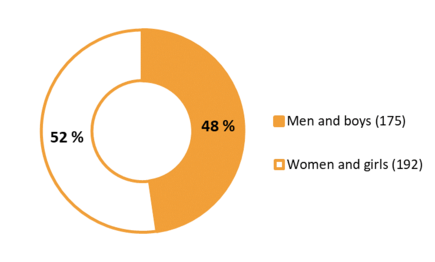
Slightly more than half of the new clients were women and girls. (n = 367)
Figure 5. Age distribution of the new clients
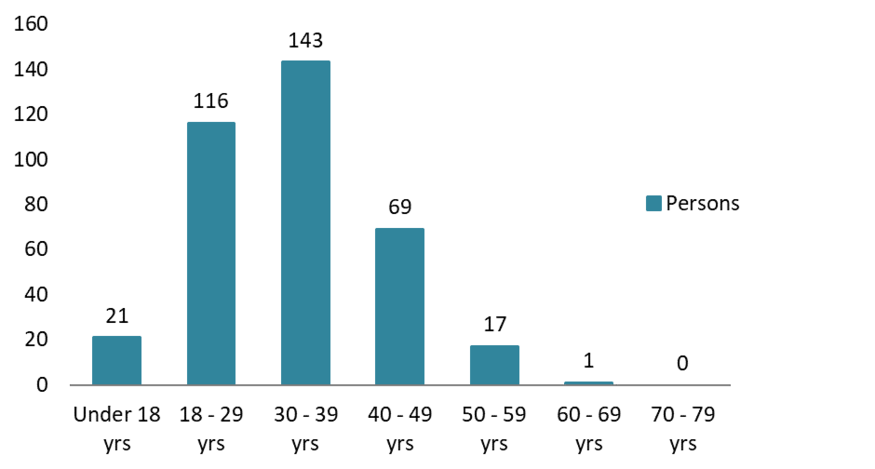
Most of the new clients were adults under the age of 40. (n = 367)
Figure 6. Forms of human trafficking targeted at the new clients
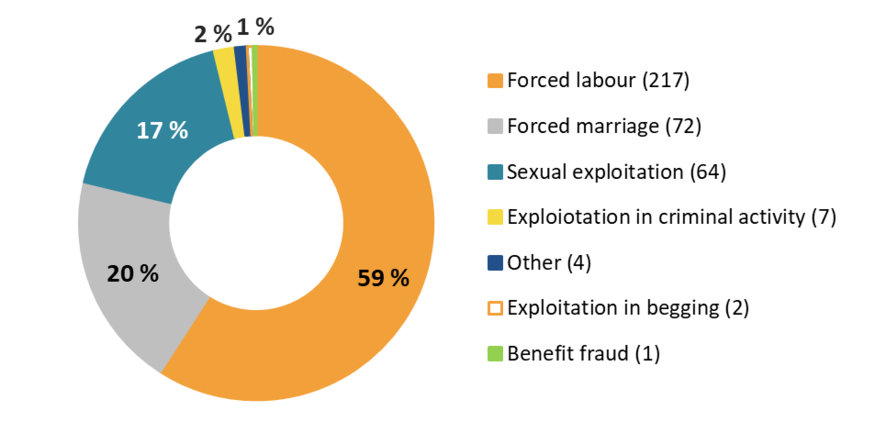
Among the new clients of the Assistance System, the number of those who had fallen victim to forced labour was significantly higher than the number of the victims of other forms of human trafficking. (n = 367)
Figure 7. Forms of human trafficking targeted at women and girls (n = 192)
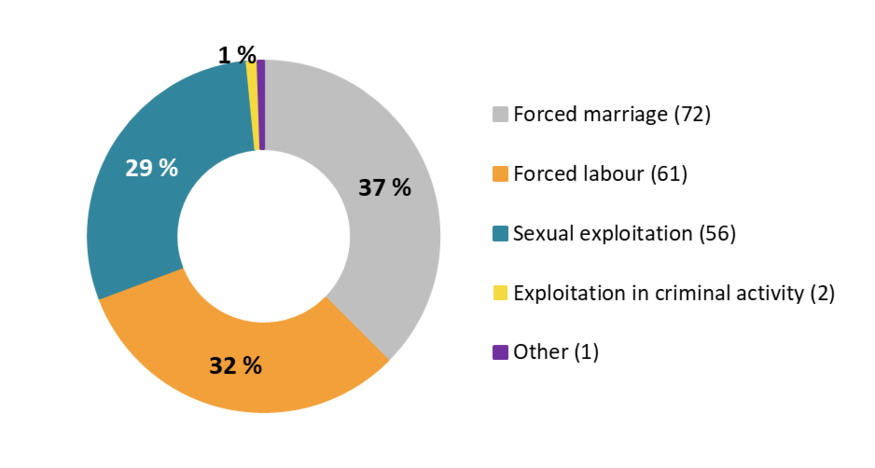
Figure 8. Forms of human trafficking targeted at men and boys (n = 175)

All in all, 131 of the new clients reported falling victim to human trafficking outside of Finland and 263 in Finland. Of those exploited abroad, the most common forms of exploitation were forced marriages (47 clients), sexual exploitation (40 clients) and forced labour (39 clients). The forced marriages outside of Finland usually took place in the client’s country of origin. Sexual exploitation and forced labour, in turn, usually took place outside the client’s country of origin, often on the journey from the country of origin to Europe. Turkey and Greece particularly stood out as locations of such incidents.
Learn more about those victimised in Finland here.
Figure 9. Forms of human trafficking according to whether the exploitation took place abroad or in Finland

All in all, 131 (36%) of the new clients fell victim to human trafficking outside of Finland. 236 people (64%) fell victim to human trafficking in Finland. (n = 367)
Only one in five new clients (77 people) had a registered municipality of residence in Finland upon their admittance as a client. The municipality organises the support and help for people who have a registered municipality of residence in Finland. As of 1 January 2023, the wellbeing services county will be in charge of organising support and help.
Upon admittance as a client, 290 people, in other words four in five new clients, were staying in Finland with a visa, as a citizen of a country with no visa requirement, an unregistered EU citizen, an asylum seeker, a person receiving temporary protection or a person without a legal residence permit.
Figure 10. Residence status of new clients upon admittance to the Assistance System

Only 29 of the new clients did not have a legal right of residence (n = 367).
Reflection periods issued for victims of human trafficking
In 2022, Finnish authorities issued 14 reflection periods for victims of human trafficking. Each of the periods were issued by the Assistance System. The average duration of the reflection period was 3 months.
The Assistance System or a criminal investigation authority (police / Border Guard) may issue a reflection period for a victim of human trafficking staying in Finland without a legal right of residence. The reflection period allows the victim of human trafficking to legally stay in Finland for a maximum of six months. Learn more about the reflection period here.
A reflection period was not considered necessary for clients staying in Finland without a legal right of residence who could not be removed from the country in any case.